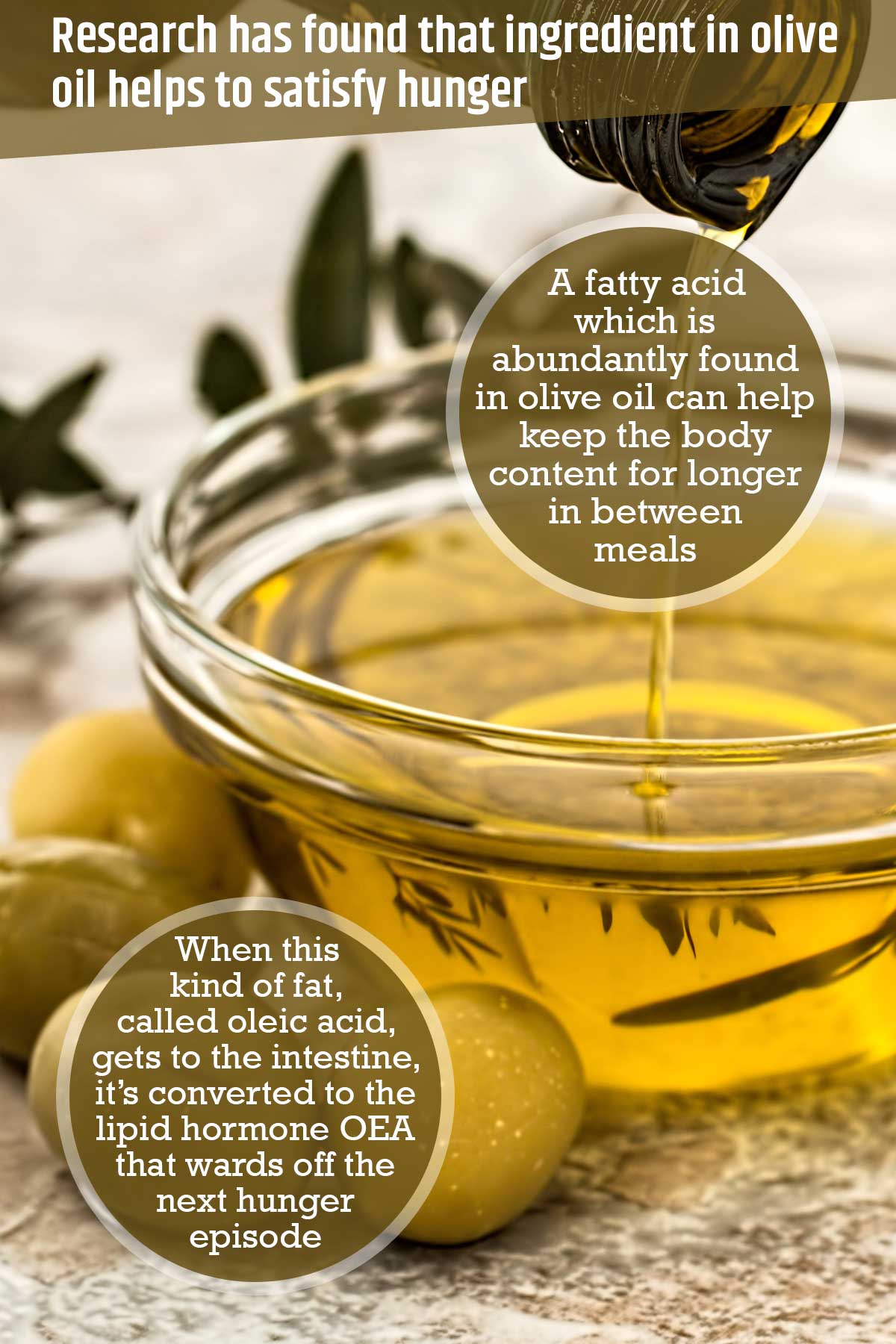A fatty acid which is abundantly found in olive oil as well as other healthful unsaturated fats has an additional benefit, it can help keep the body content for longer in between meals.
Research shows that when this kind of fat, called oleic acid, gets to the intestine, it’s converted to the lipid hormone OEA (oleoylethanolamide) that wards off the next hunger episode. The researchers stated it could be the 1st account of a food ingredient that directly supplies the substances for a hormone’s production.1✅ JOURNAL REFERENCE
PMID: 18840358
The results could provide understanding of the exact dietary makeup of protein and fat for optimum control of hunger. Protein also plays a vital part in limiting hunger, but by different methods.
Diets rich in processed foods which are full of saturated fats could disrupt this system of metabolic control, as saturated fats typically don’t have any oleic acid.
Earlier research has shown that eating stimulates cells within the lining of the intestine lining to make OEA, which, when given as a drug, educes meal frequency by means of engaging receptors known as peroxisome proliferator-activated receptors.
The researchers report that infusion of fat in to the small intestine stimulates OEA release, whereas infusion of carbohydrate or protein doesn’t.
The outcomes indicate that the triggering of small intestine OEA release, made possible by the fatty-acid transporter CD36 mediated uptake of oleic acid coming from food intake, functions as a molecular sensor linking the consumption of fat to satiety. Satiety is probably best explained as the exact opposite of hunger.



